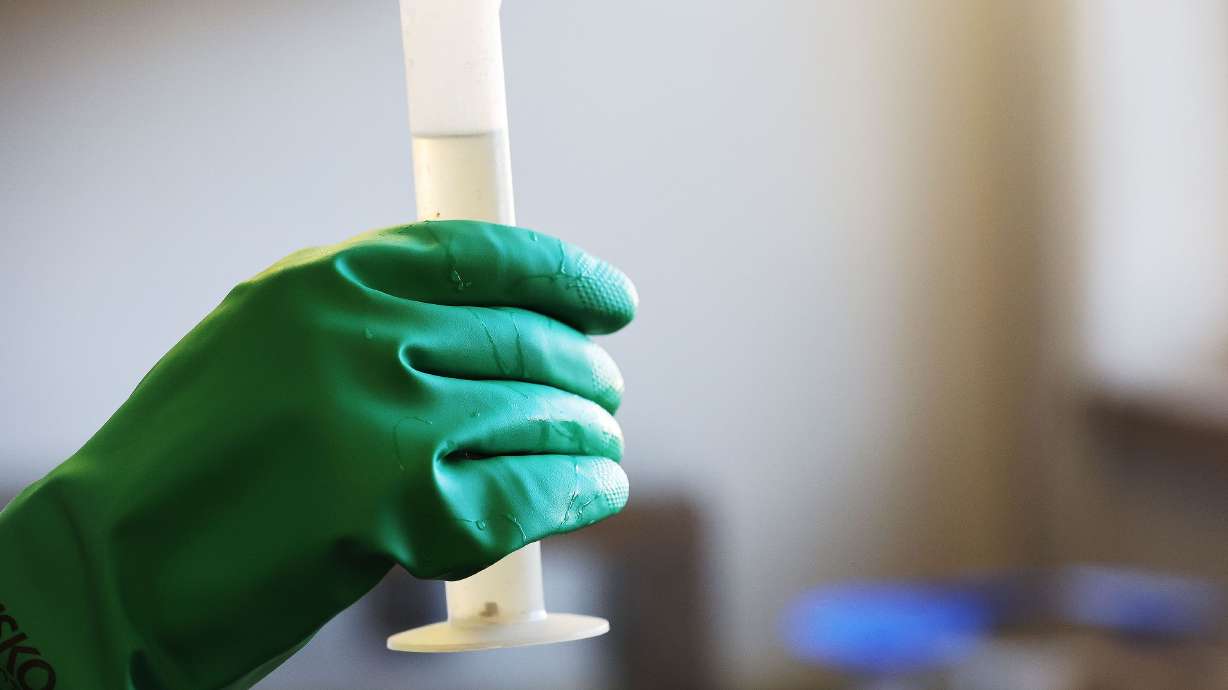Estimated read time: 4-5 minutes
This archived news story is available only for your personal, non-commercial use. Information in the story may be outdated or superseded by additional information. Reading or replaying the story in its archived form does not constitute a republication of the story.
SALT LAKE CITY — Wastewater monitoring for polio is set to increase in the United States, the Centers for Disease Control and Prevention announced this week.
Sites in Michigan and Philadelphia were identified among the first locations looking at collecting wastewater samples to be tested by the CDC for the potentially fatal, paralyzing virus that surfaced this summer in the U.S. for the first time in nearly a decade.
The CDC said "preliminary discussions" about joining the monitoring effort are underway with other state and local health departments that were not named, as part of a plan to "strategically expand wastewater testing for poliovirus in select jurisdictions across the country."
The Utah Department of Health is not currently testing for poliovirus, spokeswoman Jenny Johnson told the Deseret News, adding, "we are aware that different organizations and universities are doing poliovirus testing in wastewater, including some exploratory testing of wastewater from some Utah sites."
None of the Utah samples tested by the CDC were positive for the poliovirus, she said.
"We are planning to meet with CDC in coming weeks to discuss if there is value to test in Utah," Johnson said, noting widespread wastewater testing for poliovirus is not recommended. "Utah also enjoys a high percentage of people who are immunized against polio, thanks to widespread polio vaccinations over the past many decades."
In August, Utah's state epidemiologist, Dr. Leisha Nolen, said the state health and human services department was "definitely discussing" monitoring wastewater for polio. The department has routinely tested wastewater collected from sewage treatment plants throughout the state for COVID-19 since 2020.
"Our vaccinations are lower than we would like them to be, especially after the pandemic," Nolen said then, referring to delayed medical care including childhood polio vaccinations. "Polio, unfortunately, can take advantage of when we have a susceptible population. And we do have that right now."
But unlike wastewater monitoring for COVID-19, the CDC said testing for poliovirus will be limited to "counties with potentially low polio vaccination coverage, or counties with possible connections to the at-risk New York communities" linked to the nation's first polio case since 2013.
"Wastewater testing can be an important tool to help us understand if poliovirus may be circulating in communities in certain circumstances," said Dr. José R. Romero, director of CDC's National Center for Immunization and Respiratory Diseases.
Wastewater testing can be an important tool to help us understand if poliovirus may be circulating in communities in certain circumstances.
–Dr. José R. Romero, CDC's National Center for Immunization and Respiratory Diseases
Romero said testing for polio can be used to target vaccination efforts. A series of polio shots are typically given to infants and children and are supposed to protect them against the virus for a lifetime. In Utah and other states, children are required to be vaccinated against polio to attend kindergarten, but exemptions have increased.
"Vaccination remains the best way to prevent another case of paralytic polio, and it is critically important that people get vaccinated to protect themselves, their families and their communities against this devastating disease," Romero said.
In July, an unvaccinated man in his 20s in a New York City suburb was partially paralyzed by the poliovirus. The man lived in Rockland County, where a measles outbreak several years earlier was attributed to low vaccination rates among Orthodox Jewish communities.
The New York State Department of Health reported in October that wastewater surveillance for the polio virus in several counties, as well as New York City, since then turned up 89 "positive samples of concern," including 82 genetically linked to the Rockland County case.
Those "findings provide evidence that the unvaccinated individual Rockland County resident with paralytic polio contracted the virus through local — not abroad or international — transmission and provide evidence of expanding community spread," the New York Department of Health said in a statement.
But the findings did not indicate the Rockland County man was the source of the transmission, the statement said, adding that the investigation into the origin of the virus is ongoing. Previous reports said the man was exposed to someone who'd had a vaccine not used in the U.S. since 2000 that contains a weakened version of the virus.










